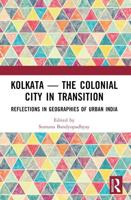Publisher's Synopsis
This handbook presents the great contemporary challenges facing cities and urban spaces in Latin America and the Caribbean. The content of this multidisciplinary book is organized into four large sections focusing on the histories and trajectories of urban spatial development, inequality and displacement of urban populations, contemporary debates on urban policies, and the future of the city in this region. Scholars of diverse origins and specializations analyze Latin American and Caribbean cities showing that, despite their diversity, they share many characteristics and challenges and that there is value in systematizing this knowledge to both understand and explain them better and to promote increasing equity and sustainability.The contributions in this handbook enhance the theoretical, empirical and methodological study of urbanization processes and urban policies of Latin America and the Caribbean in a global context, making it an important reference for scholars across the world. The book is designed to meet the interdisciplinary study and consultation needs of undergraduate and graduate students of architecture, urban design, urban planning, sociology, anthropology, political science, public administration, and more.










